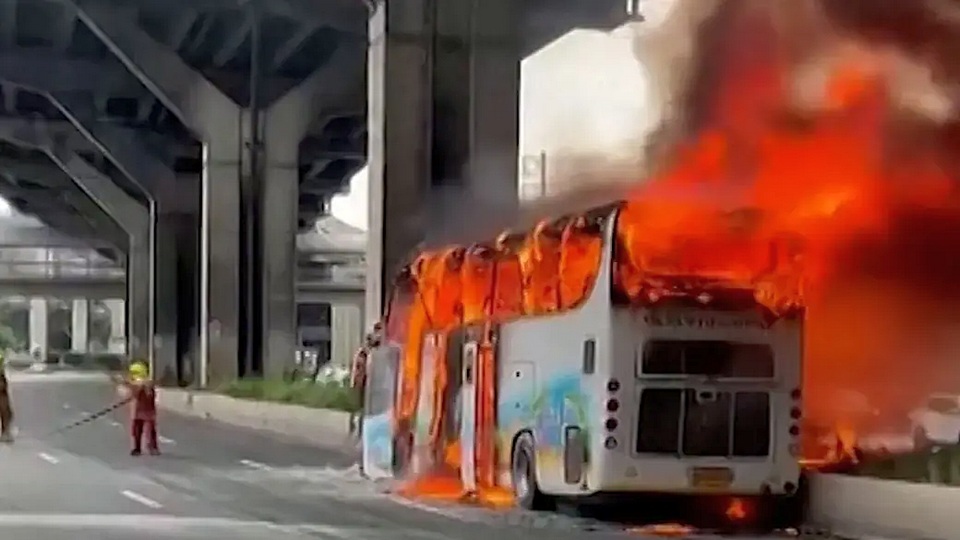
BANGKOK, Thailand – The horrific fire that engulfed a school bus in Bangkok, resulting in the deaths of 22 innocent children and three dedicated teachers, has plunged our nation into a deep mourning. This tragedy is not just a statistic; it is a stark reminder of the urgent need for stricter safety regulations in our public transport systems and greater accountability for those responsible for the lives of our children.
Children aged between three and nine from Wat Khao Sangkharam School were on what should have been a joyful field trip, a day filled with learning and laughter. Instead, their lives were cut short in a horrifying inferno. As parents, teachers, and community members, we are left grappling with questions that demand urgent answers: How could such a preventable disaster occur? What lapses in safety protocols allowed a bus carrying children to be transformed into a death trap?
Preliminary investigations indicate that a tire burst may have initiated the chain of events leading to this catastrophe. Yet, this explanation only scratches the surface of a deeper, systemic issue. Our roads and vehicles must be safe for the most vulnerable members of society – our children. The fact that a tire burst could lead to such a devastating outcome highlights a lack of rigorous maintenance and inspection protocols for school transport vehicles.
Moreover, the use of compressed natural gas (CNG) as fuel in buses poses significant risks that must be carefully evaluated. In the wake of this tragedy, Transport Minister Suriya Juangroongruangkit has promised to investigate the safety of CNG in vehicles. However, this investigation should not be a mere formality; it must lead to actionable changes and enforceable regulations to ensure that no other family has to endure such unspeakable grief.
Beyond the immediate factors that contributed to this fire, there is a cultural attitude toward safety that must be addressed. We cannot continue to treat safety measures as optional or secondary. We need a comprehensive overhaul of the safety standards for school transport, with a commitment from the government to prioritize the well-being of our children above all else. This includes mandatory training for drivers, regular vehicle inspections, and stringent regulations regarding the transport of minors.
Furthermore, we must hold those accountable for these vehicles and their maintenance to a higher standard. If negligence is found, it is imperative that those responsible face consequences. Accountability is essential to restoring public trust in the systems designed to protect our children.
The emotional scars left by this tragedy will linger long after the flames have been extinguished. As a nation, we must not let these lives be forgotten. We owe it to the victims, their families, and future generations to ensure that such a catastrophe never happens again. It is time for all stakeholders – government officials, educational institutions, and the public – to unite and demand the necessary reforms that will protect our children in their journeys.
In the end, the loss of 22 young lives and the sacrifice of three teachers must ignite a fire in our hearts—a fire that drives us to advocate for a safer future. Let this be the catalyst for change, so that we may honour their memories not just with words, but with unwavering action toward a safer tomorrow.









